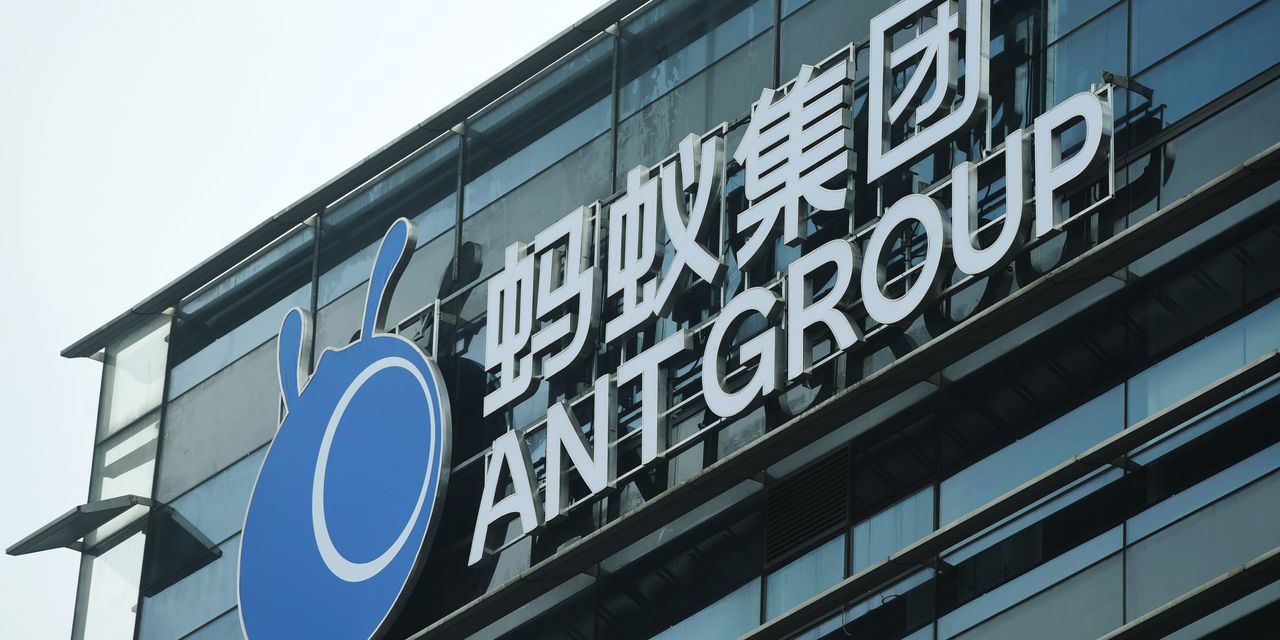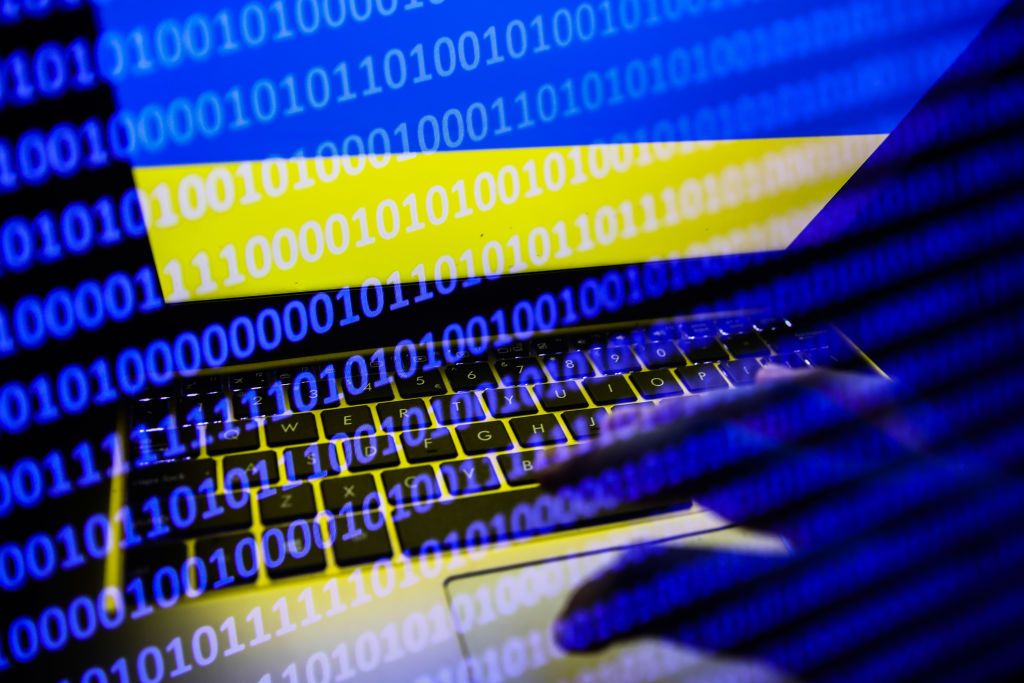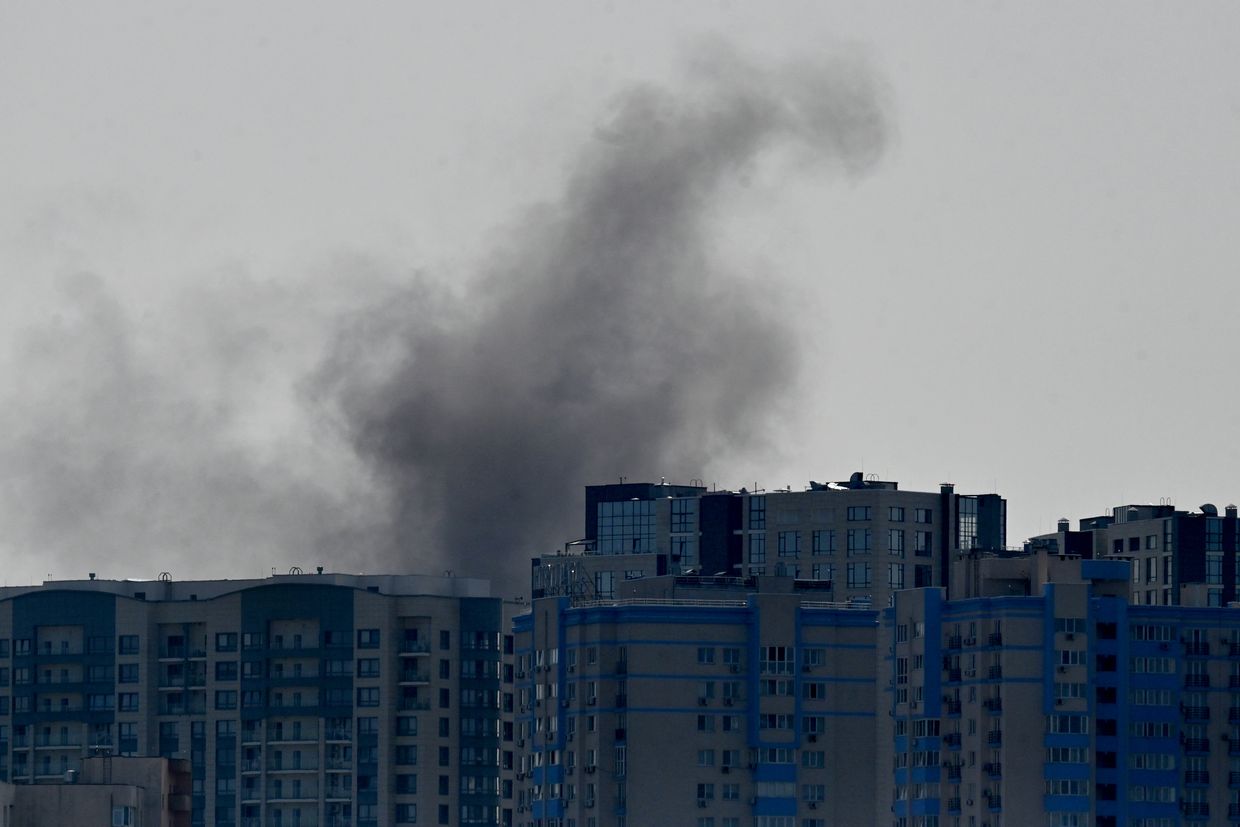
font size
Ant Group is headquartered in Hangzhou, Zhejiang Province, east China.
STR / AFP via Getty Images
Investors took a breather Monday from dumping stocks in
Alibaba Group Holding
(Stock bar: BABA), the Chinese e-commerce giant that’s newly undergoing antitrust check. The stock traded steadily after sliding 13% in two sessions.
Danton Goei, Global Portfolio Manager at Davis Advisors, is betting on a recovery heading into 2021. “The government’s action doesn’t really affect Alibaba’s overall prospects,” he says. “We think the stock is very cheap right now.”
The lower price reflects the official tensions surrounding three linked but distinct entities: Alibaba; Sister financial company Ant Group, whose initial public offering was canceled at the last minute in early November; And their co-founder Jack Ma. Of the three problems, Alibaba’s problems appear to be the least serious. A brief announcement on December 24th from the State Administration for Market Regulation indicated that it was targeting the company’s practice of “picking one out of two” – meaning forcing merchants to sell only on Alibaba rather than competitors like
JD.com
(Dinars) or
Bindowdu
(PDD).
Goei says that should deliver nothing more than a lightning bolt to basic e-commerce, and leave growing companies like cloud computing completely unimpeded. The authorities’ follow-up, likely to crack down on losing pricing, falls into the same category.
The Ant Group’s challenges are more serious. The IPO was withdrawn after authorities questioned their most profitable practice: creating consumer loans, then selling them to banks without incurring any risk, or capital, on their own books. The second shoe was abandoned this weekend after a central bank statement accused Ant of “possessing little legal knowledge and turning a blind eye to compliance requirements.”
The regulator suggested it be “back to its origins” as a simple payments network. “The main concern for regulators is that online banking is out of control,” says Tracy Chen, global credit manager at Brandywine Global.
Ma, who until recently was a venerable symbol of the Chinese revolution on the Internet, did not provide his companies with any “inflammatory behavior,” as Chen puts it. He famously mocked China’s dominant state banks for the “pawn shop mentality” at a recent conference with senior party figures, and apologized lukewarm, if any.
Alibaba still owns a third of the Ant Group. But its paper losses in the deferred IPO are more than its pricing in its shares, according to Goei figures. Even if Ant is cut in half from the $ 300 billion valuation she was targeting, that would mean a $ 50 billion decrease in Alibaba’s stake. Alibaba’s market value has fallen by more than $ 200 billion since the IPO collapsed.
Joy notes that Chinese regulatory anxiety tends to emerge in waves and spill over from industry to industry. Shares in the joint giant Alibaba
Tencent Holdings
(700: Hong Kong) was depressed for most of 2019 as the government froze approval of new video games, its biggest source of income. The ban has been lifted, and Tencent has gained nearly 40% this year.
There is a possibility, Chen says, that sentiment has shifted on a larger scale against businesses in Beijing’s shadowy areas of power, and Jack Ma will end up as “the chicken you kill to scare the monkey”. But it is unlikely. Alibaba may now be the biggest employer in China, she notes, and a dear national heroine, once it has shaved it down a bit. “China ultimately wants to win the tech war, and it needs Alibaba to do that,” she says.
Then there is the evaluation argument. Raymond James analyst Aaron Kessler numbers are trading Alibaba at 16 times the projected 2021 earnings, which is convincing for a company that grew 30% revenue and Ebitda 28% year over year in the last quarter. “We remain buyers of BABA at current levels,” he says.

“Професійний вирішувач проблем. Тонко чарівний любитель бекону. Геймер. Завзятий алкогольний ботанік. Музичний трейлер”






